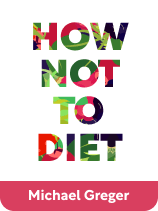

This article is an excerpt from the Shortform book guide to "How Not to Diet" by Michael Greger. Shortform has the world's best summaries and analyses of books you should be reading.
Like this article? Sign up for a free trial here.
Why are processed foods bad for you? What do processed foods do to your body?
In How Not to Diet, Michael Greger suggests not eating processed foods if you’re trying to maintain or lose weight. He claims that we’re prone to weight gain because we’re encouraged by the food industry to eat processed foods.
Here are the four reasons why processed foods are bad for your body.
Processed Foods and Animal Products Are Calorie-Dense and Low in Nutrition
Greger argues that one reason we’re prone to weight gain is that the food industry takes advantage of our instinctual preference for calorie-dense foods. It does this by encouraging us to eat processed foods and animal-derived products such as meat, fish, and dairy, which are cheap to produce and distribute.
Why are processed foods bad? These food groups directly contribute to weight gain because they lack nutrition and are high in calories. Greger explains that the food industry strips crops of all nutritional value and fiber by either running them through processing mills or feeding them to livestock to create animal-derived products (such as meat, dairy, and eggs). It then adds high-calorie, low-nutrition components such as sugar or salt, oil, preservatives, artificial colorings, and flavorings to create fatty, starchy, sugary, or salty products.
According to Greger, eating these processed foods creates four negative consequences that lead to weight gain:
- They decrease your metabolism.
- They increase your appetite.
- They stimulate inflammation in your body.
- They increase the number and size of fat cells in your body.
Let’s explore these four negative consequences in more detail.
Negative Consequence #1: They Decrease Your Metabolism
According to Greger, because processed foods and animal products contain calories in their simplest form (fat and sugar), your body doesn’t have to work hard to digest them because there aren’t many nutrients to extract. As a result, you don’t burn many calories digesting the food. When you continually eat these foods, your body gets used to applying less effort to digest your food. It adapts by decreasing your metabolism—the rate at which your body burns calories and fat reserves. This slows down your ability to burn through any excess calories you’ve consumed.
(Shortform note: Health professionals offer differing opinions about the relationship between digestion and metabolism. While they all validate Greger’s argument that calorie-dense foods require less effort to digest (thus burning fewer calories), some experts argue that metabolic rates remain steady from age 20 to 60 despite what you eat. They claim that metabolism can fluctuate during this time if body fat and muscle mass percentages change: The more body fat you accumulate, the lower your metabolism. The more muscle mass you gain, the higher your metabolism. This implies that consuming calorie-dense foods may indirectly decrease metabolism—because it increases body fat percentages.)
Negative Consequence #2: They Increase Your Appetite
Greger argues that processed foods and animal products increase your appetite in four ways:
1) They quickly leave your stomach: Greger explains that food remains in your stomach until the digestive process, which involves extracting and sorting through any nutrients in the food before excretion, is complete. During this time, your body releases a steady supply of nutrients from the food in your stomach into your bloodstream, creating hormonal changes that make you feel full. However, since processed and animal-derived high-calorie foods are devoid of nutrition and don’t take long to digest, they don’t sit in your stomach for long or provide sufficient nutrients to satiate you.
(Shortform note: Dieticians clarify how quickly processed foods leave your stomach. Nutritionally complex food (such as fiber, protein, and complex carbohydrates) takes your small intestine an average of two hours to process. Since processed foods and animal-derived products aren’t nutritionally complex—because they’re generally composed of simple carbohydrates and fats in their purest form—the small intestine can extract any nutritional content in approximately 30 to 60 minutes. Therefore, as Greger says, these foods don’t keep you full for long.)
2) They trigger blood sugar spikes: According to Greger, the more quickly your body digests food, the more sugar it releases into your bloodstream—creating spikes in your blood sugar levels. This blood sugar spike creates hormonal changes that trigger your appetite. He notes that these blood sugar spikes occur more after eating foods containing high amounts of saturated fats—such as meat and fish—which causes an excessive release of insulin.
(Shortform note: Diabetes research backs up Greger’s claim that quick digestion and saturated fats contribute to blood sugar spikes that increase appetite because they trigger your liver to release more glucose into your bloodstream. However, your diet’s not the only factor that contributes to blood sugar spikes—menstrual cycles, illnesses and injuries, hormonal changes, adrenaline rushes, and anaerobic exercise can also produce the same effect.)
3) They encourage cravings: Greger claims that foods that contain concentrated forms of salt, sugar, fat, and artificial additives initiate the release of hormones that trigger cravings. This means that eating these foods encourages your body to crave even more of them, regardless of how full you are.
4) They don’t nourish you: Greger explains that, because these foods are devoid of nutrition, eating them doesn’t satisfy your nutritional needs. Since your body lacks nutrition, it adopts two defensive measures: First, to prevent starvation, it reduces the number of calories it burns digesting food so that it can store more of these calories as fat reserves. Second, it induces cravings for high-calorie foods in an attempt to satisfy its nutritional needs. This leads you to eat more calories than your body can burn
(Shortform note: Greger implies that eating foods that are calorie-dense and low in nutrition pushes the body to adopt these defensive measures. Dieticians clarify that this isn’t the case: The body only adopts these two defensive measures when it suffers from extreme malnourishment—for instance, when someone suffers from an eating disorder and starves their body of nutrition. Starving the body this way decreases muscle mass, which then lowers metabolism. (Recall: the higher your muscle mass, the higher your metabolism.) When your metabolism decreases, you feel more lethargic—leading you to crave foods that will provide a boost of energy.)
Negative Consequence #3: They Stimulate Inflammation in Your Body (inflammation in your body)
According to Greger, processed foods and animal products stimulate inflammation within the body. He explains that, normally, inflammation is the body’s way of triggering the healing process whenever it gets hurt or sick. In this type of situation, the inflammation that occurs is short-term and targeted toward resolving a specific problem. For example, you stub your toe, and it looks and feels inflamed for a few hours until it heals.
However, processed foods and animal products contain high quantities of saturated fat and trans fat—substances that stimulate an inflammatory response that is long-term and unspecific. This means that the inflammation lingers in your whole body and, instead of healing you, it creates hormone imbalances that perpetuate many diseases such as heart disease, bowel disease, arthritis, and dementia. In addition to harming your health, these hormone imbalances contribute to weight gain because they raise your blood sugar levels, increase your appetite, and decrease your metabolism.
Negative Consequence #4: They Increase the Number and Size of Fat Cells in Your Body
Greger argues that processed foods and animal products expose your body to chemicals that promote weight gain, such as organotins, BPA, and phthalates. He explains that, normally, the total number of fat cells in your body remains stable—when you gain or lose weight, these cells just enlarge or shrink. However, exposure to these chemicals creates hormonal imbalances that disrupt this stability. These imbalances activate the creation of new fat cells—by converting tissue stem cells into fat cells—and expand the size of existing fat cells.
While chemical pollutants get into our food via several sources in the processed food supply chain—such as plastic packaging—much of our food is contaminated before it’s packaged. This is because there are chemical pollutants both in the pesticides used to farm the crops that make our food and in the artificial additives used to make processed food more palatable.
Notably, Greger claims that 90% of chemical pollutant exposure comes from eating animal-derived foods (both organic and non-organic) such as meat, fish, and poultry—because, in addition to feeding these animals contaminated crops, livestock owners pump them full of artificial growth-enhancing hormones.

———End of Preview———
Like what you just read? Read the rest of the world's best book summary and analysis of Michael Greger's "How Not to Diet" at Shortform.
Here's what you'll find in our full How Not to Diet summary:
- How eating processed foods and animal products leads to weight gain
- Why eating plant-based foods reduces the calories your body stores as fat
- What dietary changes will help you shed excess pounds and keep them off






